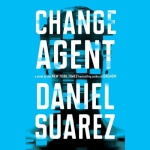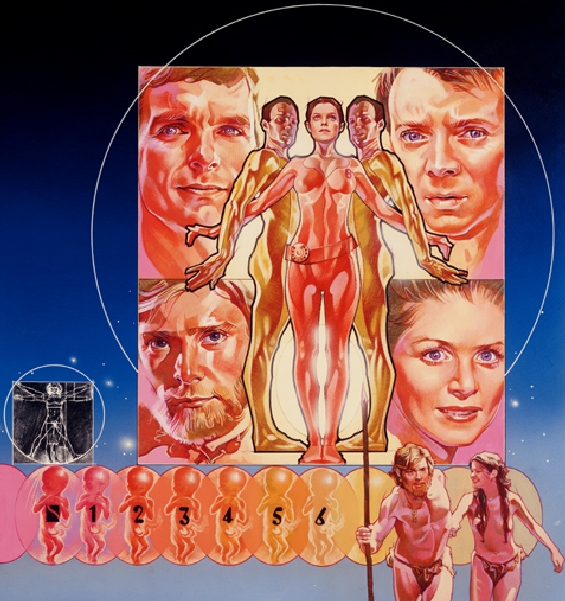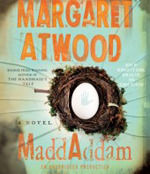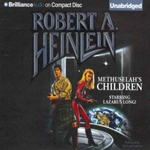
 Change Agent
Change Agent
By Daniel Suarez; Read by Jeff Gurner
Audiobook Download – 14.5 Hours [UNABRIDGED]
Publisher: Penguin Audio
Published: Apr 18, 2017
In 2045 Kenneth Durand leads Interpol’s most effective team against genetic crime, hunting down black market labs that perform “vanity edits” on human embryos for a price. These illegal procedures augment embryos in ways that are rapidly accelerating human evolution—preying on human-trafficking victims to experiment and advance their technology.
Executive Summary: Despite a bit of a bumpy start, I think this is my favorite book by Mr. Suarez since Daemon.
Audiobook: Jeff Gurner continues to be a good fit for Daniel Suarez books. He reads well, and does a few voices to add that little extra something to the audiobook. These are exactly the kind of books I think are well suited to doing in audio.
Full Review
I picked up Daemon a few years back on the recommendation of a co-worker. It was kind of remarkable that I hadn’t found it on my own earlier. That book was totally in my wheelhouse. A near-future sci-fi thriller about a computer program gone crazy? Yes please. However unlike many people I found the sequel Freedom™ to just be too over the top for me to read it without constantly rolling my eyes.
In fact, I’ve found most of his work after Daemon just a little too ridiculous at times for me, but always good for a fun quick listen. I’d say this book is no different, except I found myself enjoying this one a lot more by the end than the last few.
Bioengineering seems to be a pretty popular topic for near-future science fiction recently, but I found Mr. Suarez’s take on things to be pretty interesting and unique. I did struggle a bit in the beginning with the whole “Wrongfully accused Fugitive” trope. It felt too generic for me, and I found myself starting to grow bored.
However once things got past the setup, I found that the sci-fi elements that Mr. Suarez added in made his spin on the story unique enough to be quite enjoyable. As with most of his books, things start of in the realm of believability and end up veering into the realm of ridiculousness at times.
I sometimes struggled with Kenneth Durand as a protagonist, but overall I thought his story does a good job of posing interesting questions about how much of who we are is biology vs. our upbringing. The whole nurture vs. nature debate. The book as a whole brings up some interesting ideas of what should be allowed and what should be illegal in terms of biological engineering.
I don’t pretend to have the same level of comprehension about biology and what’s possible in that field as I do in computers, but some parts of the story were just a bit too much for me to not to roll my eyes. I’d be curious to find out if Biology folks will have the same kinds of issues with this book that I had with Freedom™. Maybe they’ll tell me that Mr. Suarez isn’t too ridiculous after all. I sure hope not, because it would be pretty terrifying.
Like all of his books, he takes interesting science, extrapolates on what might be, and uses that to frame an over the top thriller story. It was a fun book, and I’ll be eager to pick up his next book when that comes out as well.
Review by Rob Zak



 Rule Breaker (A Novel of the Breeds #29)
Rule Breaker (A Novel of the Breeds #29) MaddAddam (MaddAddam #3)
MaddAddam (MaddAddam #3) Beyond This Horizon
Beyond This Horizon Methuselah’s Children
Methuselah’s Children